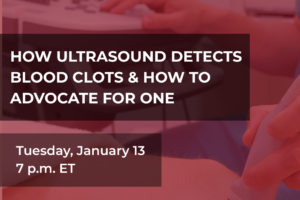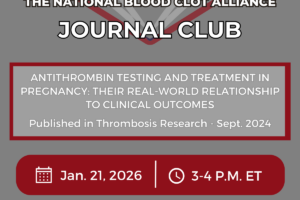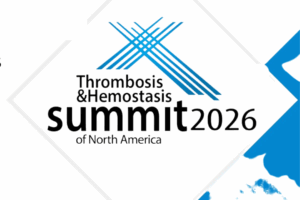Take Control of Your Health During National Women’s Health Week
There are more than 60 million women of child-bearing age in the United States, and the majority of them report using some form of birth control. In fact, the birth control pill is their number one choice. While research shows that birth control pills are safe and effective, just like any other medication, they can pose some risks, which is why all women should take control of their health and carefully evaluate their risks when considering birth control options.
One risk associated with birth control pills or any form of hormonal birth control that contains estrogen, including the pill, patch, or ring, is a life-threatening blood clot. The use of birth control pills with estrogen increases a woman’s risk for blood clots three-fold, and some of the newer birth control pills women use pose a risk two-times greater than older birth control pills. The use of patches and rings containing estrogen poses a risk double that of birth control pills. Women with a clotting disorder, a previous blood clot, or a family history of blood clots are at an even greater risk.
Take Steps to Prevent Dangerous Blood Clots
Join the National Blood Clot Alliance (NBCA) during National Women’s Health Week (NWHW), May 12-18, 2019, as we work together with the Alexandra L. Rowan Memorial Foundation to provide women with life-saving information about birth control and blood clots, and to help them determine, along with their doctor, their risk for blood clots and all of their birth control options. Together, we are encouraging women to visit Women & Blood Clots for more information about birth control and blood clots. Even if you are a woman at risk for blood clots, it is still possible for you to plan your family as you choose, by understanding your risk for blood clots and taking these simple steps to reduce your risk:
- Learn more about birth control and blood clot risks by visiting Women & Blood Clots
- Complete the Risk Assessment and discuss their results and birth control options with their doctor
- Talk to their doctor about any personal or family history of blood clots, and their existing risk for blood clots
- Know the signs and symptoms of blood clots
Connect with NBCA on Social Media
Follow us on Women & Blood Clots Twitter and Instagram, as well as Stop the Clot Facebook, Twitter, and Instagram, where we will be sharing special content related to women and blood clots each day during National Women’s Health Week. You can help make a difference by sharing our posts, tweets, pictures, and pins with your friends and family.
Know the Facts
Each year, up to 900,000 people are affected by blood clots, and about 100,000 people will die because of blood clots. However, many of these deaths can be prevented simply by sharing life-saving information. Women in particular face specific risks for blood clots that span their entire lives. In addition to the risk for blood clots connected to hormonal birth control, women are also at risk during pregnancy and childbirth, and when estrogen is used in the treatment of menopause symptoms later in life.
To learn more about women and blood clot risks, signs and symptoms, and prevention, please visit and share www.womenandbloodclots.org.







